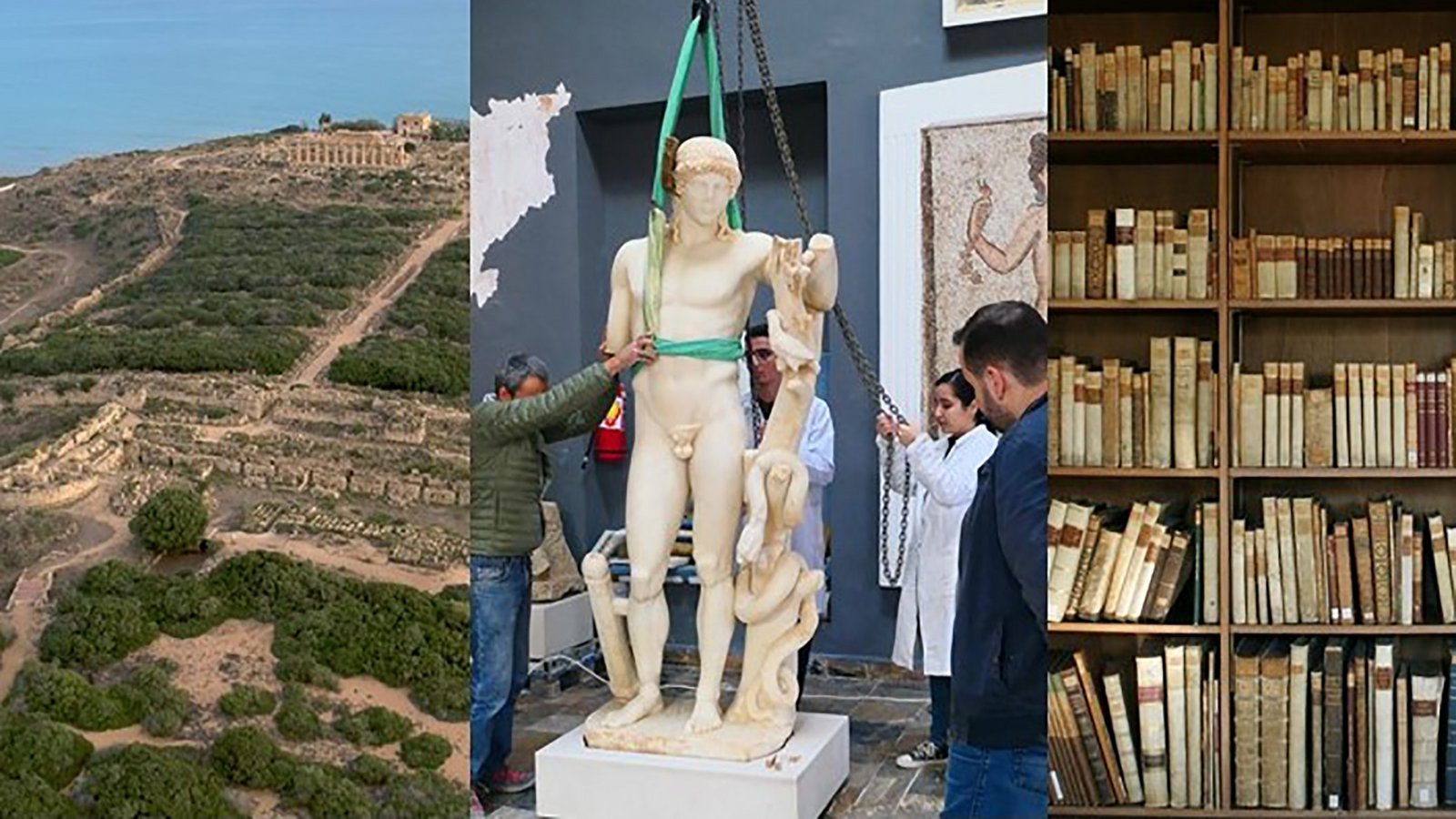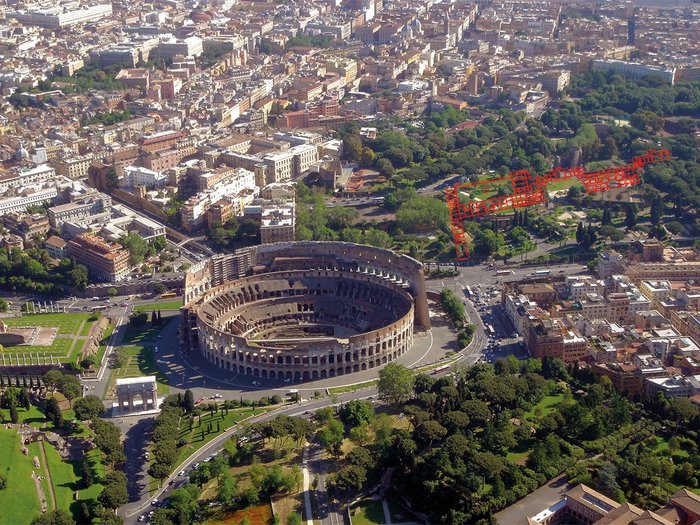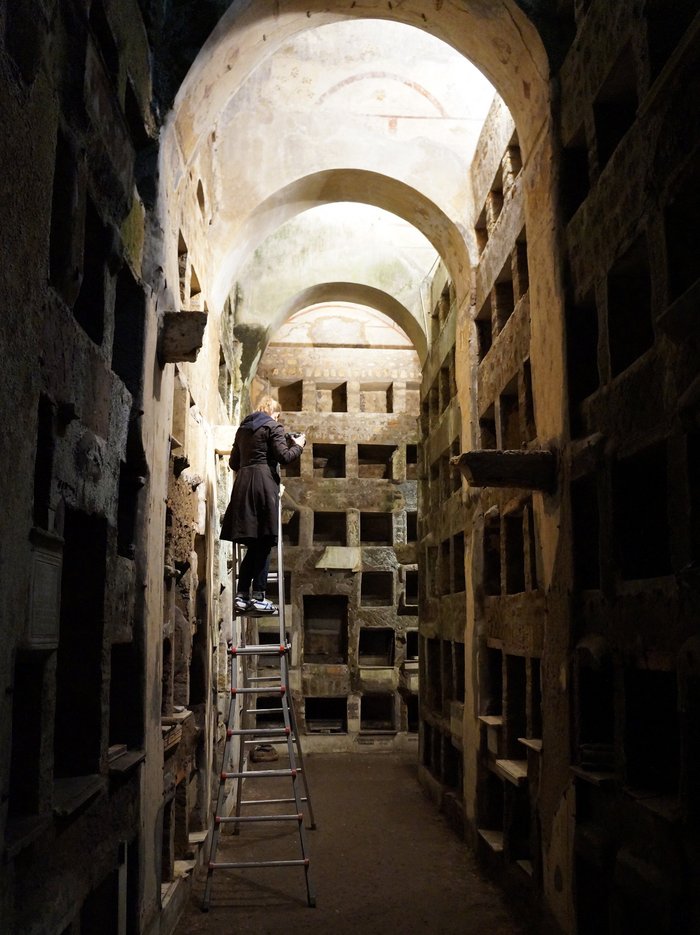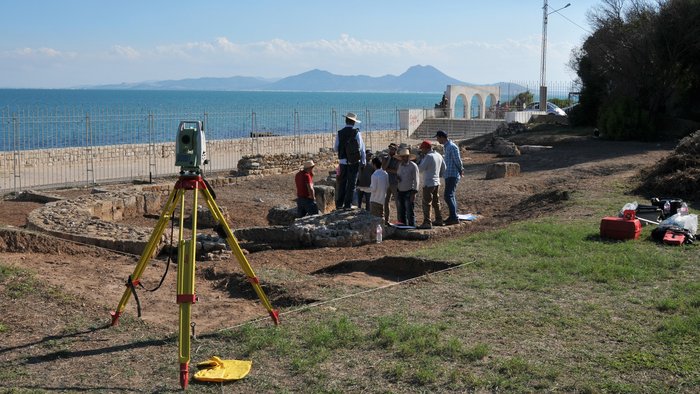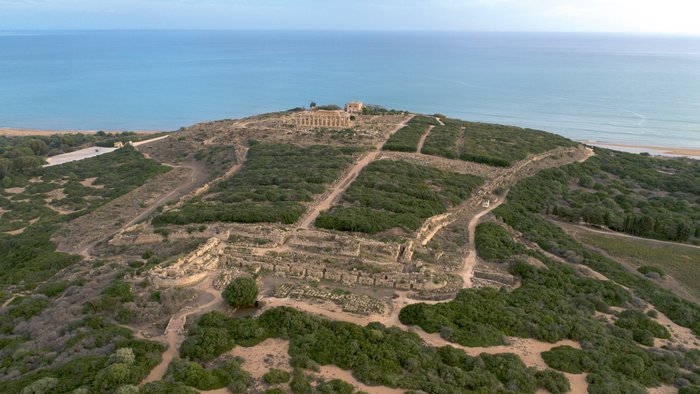About Us
The Instituto di Corrispondenza Archeologica which was founded on Rome's Capitoline Hill in 1829, formed the nucleus of what is today the worldwide operating German Archaeological Institute (DAI). In its early days it was the first permanent organisation of international cooperation in Europe, originally with four sections each based in Rome, Berlin, London, and Paris. After its launching, its reference library, discussion forums, scholarly publication- and research activities very soon developed to establish the cornerstones of the Roman institute, which until today have been able to leave their mark. The institute's own editorial team pursues the goal of collecting and regularly publishing archaeological discoveries in Italy and North Africa. It thus forms a platform where knowledge and exchange is generated and sustained and not least where training of young scholars - be they from Germany, Italy, or anywhere in the world - is advanced.
The department's long-standing presence for now more than 190 years in its host country Italy has created a basis of trust with regard to all of its research projects. At the same time, the Roman institute has become an important component in the overall German-Italian cultural relations and even beyond.
Located in the heart of Italy's capital and embedded in a dense network of seven other German and altogether 40 Italian and international research institutes and academies, the DAI's Rome Department focusses on archaeological and classical research projects and monument preservation schemes throughout Italy and North Africa. The department's archaeological and architectural research projects concentrate on Italy and its neighbouring regions – especially the Adriatic, North Africa (Tunisia, Algeria), and Central Europe. Their primary chronological focus are the Late Bronze Age (2nd half of the 2nd millennium BC), the Early Iron Age to late antiquity (4th – 6th centuries AD), and the Early Middle Ages (7th –8th centuries AD) with occasional excursions into modern times.
Through the systematic cataloguing and presentation of monuments carried out in cooperation with its partners, the Rome Department has remained true to the initial aim of the Instituto di Corrispondenza, though whilst linking the latter with the record of new discoveries through excavations and architectural research projects. Currently, excavations are being carried out at such eminent sites as the Capitoline Hill, the Colosseum and the Domus Aurea, the subterranean world of the Roman catacombs, the ruins of Pompeii, Phoenician sites like Carthage (Tunisia) or ones of Greek culture like Selinunte in Sicily.
At the same time, being a subsidiary of Germany's Federal Foreign Office, the DAI Rome furthermore is a significant actor in cultural mediation in Italy. Having the opportunity to being engaged with archaeology in Italy has been the privilege of the DAI for almost 200 years and a challenge that the institute takes on gratefully – in spite of the continually evolving claims and prospects of a cultural discipline amidst a German, Italian, and European-Mediterranean context.
How We Are Organised
The Rome Department of the DAI is headed by a first and a second director in terms of both research and administration. The departmental administration assists the directors in managerial matters. Researchers are engaged in research projects in various, subject-related fields ranging from classical and late antiquity to prehistoric archaeology, Etruscan studies, and architectural research. They furthermore are involved with service tasks in the core areas of scientific infrastructures such as the library, the photo library, the archive, public relations, the editorial office, and IT. With the above-mentioned disciplines, they also cover the department's areas of work with respect to cultural geography and chronology. The Rome Department has two properties: the actual institute building in Via Sardegna and the research college (guest house) in Villino Amelung.
The board of directors at the Rome Department is represented in the DAI's board of directors and, whenever required, also attends as a guest at meetings of the DAI's central administration. As in all branches of the DAI, it is seconded by an advisory board.

